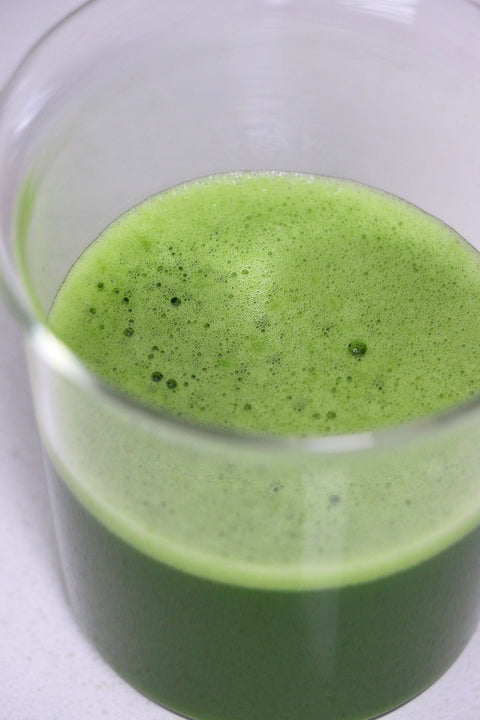
Gut health is central to overall well-being, and what you drink can have a direct impact on your digestive system. Matcha, with its unique nutrient profile, supports a healthy gut in several ways.
Rich in Polyphenols
Matcha contains polyphenols like catechins, which act as prebiotics. Prebiotics feed beneficial gut bacteria, helping maintain a balanced microbiome (Tuohy et al., 2012). A healthy microbiome aids digestion, strengthens immunity, and even supports mood regulation.
EGCG and Digestive Health

Epigallocatechin gallate (EGCG), matcha’s most abundant catechin, has been linked to:
-
Reduced inflammation in the digestive tract (Yang et al., 2009)
-
Improved fat metabolism (Hursel et al., 2009)
-
Potential protection against gut pathogens (Lee et al., 2009)
Matcha and Detox Support

Matcha’s high chlorophyll content may also support gentle detoxification, binding to toxins and aiding in their removal (Ferruzzi & Blumberg, 2015). This may contribute to better digestion and nutrient absorption.
Gentle on the Stomach
Compared to coffee, matcha is less acidic and easier on the stomach. Many people who experience discomfort with coffee find matcha a soothing alternative.
From supporting gut bacteria to reducing digestive inflammation, matcha provides multiple benefits for digestive health. Adding a daily cup can be a simple yet effective way to support your gut naturally.
Forest Cloud matcha is carefully shade-grown and stone-ground to preserve its polyphenols and nutrients, ensuring you get the best gut-supporting benefits in every sip.
References
-
Ferruzzi, M. G., & Blumberg, J. B. (2015). Bioavailability of flavonoids and polyphenols. Annual Review of Nutrition, 35, 375–403.
-
Hursel, R., Westerterp-Plantenga, M. S. (2009). Green tea catechin plus caffeine supplementation to increase energy expenditure and fat oxidation. Obesity, 17(7), 1348–1354.
-
Lee, H. C., Jenner, A. M., Low, C. S., & Lee, Y. K. (2009). Effect of tea phenolics and their aromatic fecal bacterial metabolites on intestinal microbiota. Research in Microbiology, 157(9), 876–884.
-
Tuohy, K. M., et al. (2012). Diet and the microbiota. Annual Review of Food Science and Technology, 3, 19–39.
Yang, C. S., Wang, X., Lu, G., & Picinich, S. C. (2009). Cancer prevention by tea: Animal studies, molecular mechanisms and human relevance. Nature Reviews Cancer, 9(6), 429–439.





